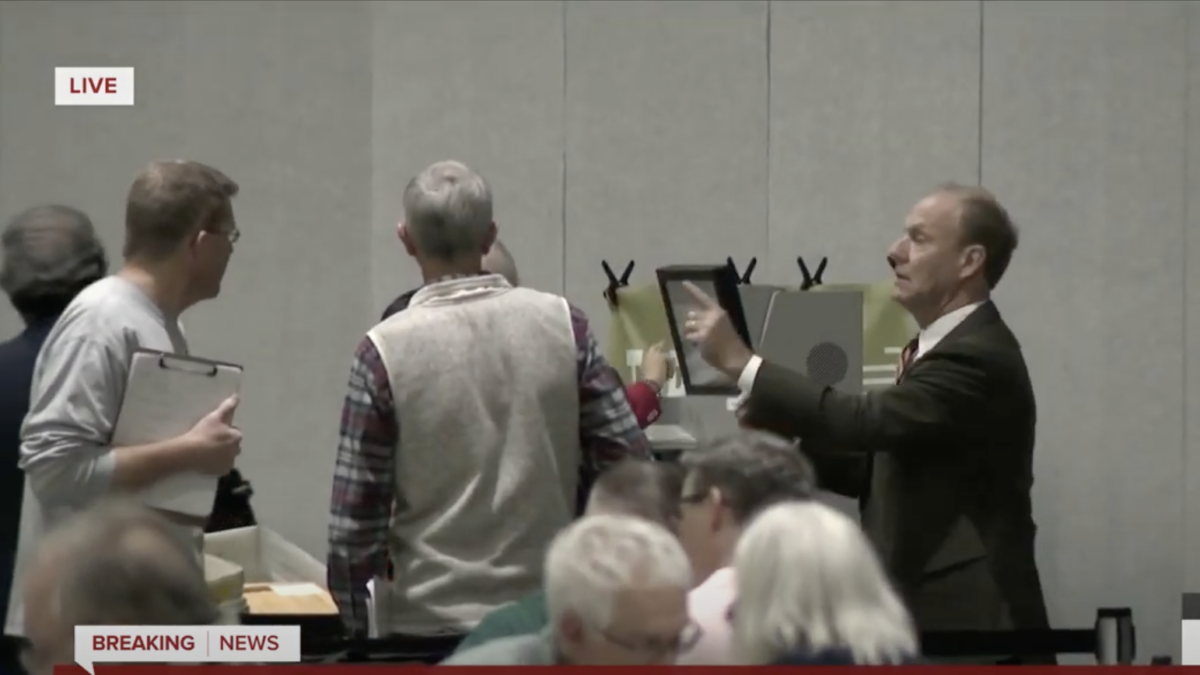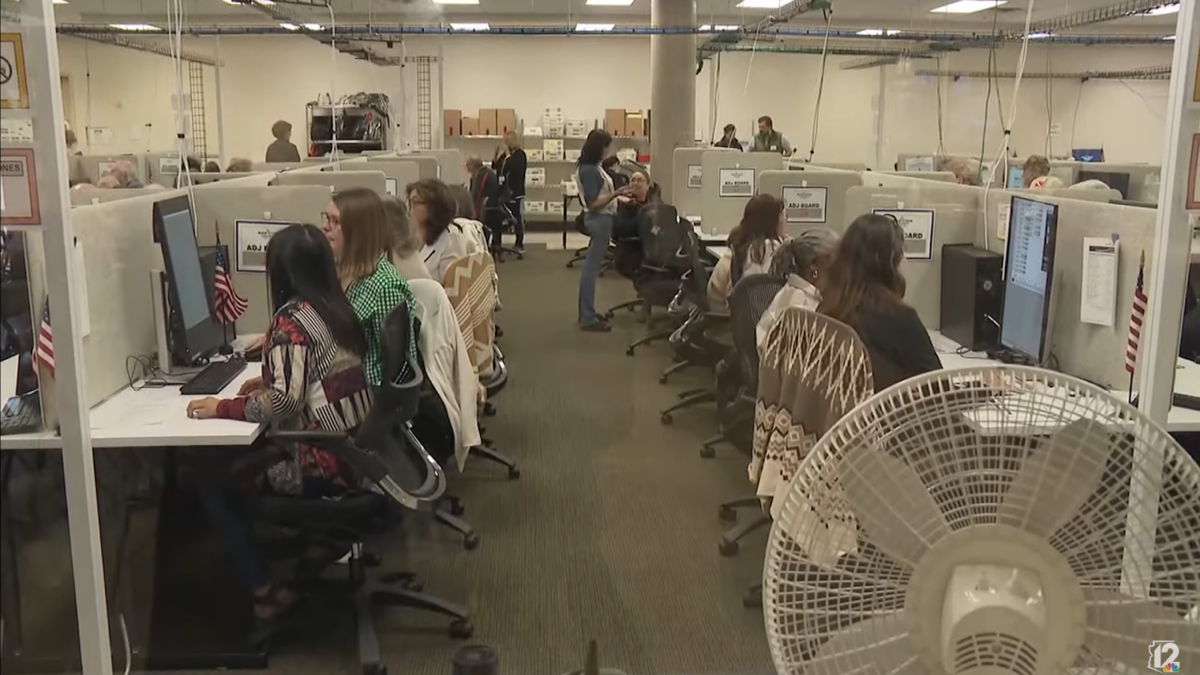
In a typical knee-jerk reaction to the tragic shooting earlier this month at Umpqua Community College in Roseburg, Oregon, that left ten people dead, President Obama is reportedly considering executive action to strengthen gun-control laws.
On the other side, leading GOP candidates are turning their attention to mental illness. The general idea seems to be that increasing mental health treatment will reduce the number of mass shootings.
“We can talk about the guns, but there’s a much deeper issue,” said Ohio Gov. John Kasich. “I’m open to anything on mental illness… Look, it’s part of the reason I expanded Medicaid, is so that people could get help, so that the mentally ill could get some help.” Sen. Marco Rubio said new gun-control laws would not have prevented the Oregon shooting, and that, “in cases of mental illness or in the cases of someone who just wants a gun to carry out a crime, they’re not going to follow the law.” Donald Trump’s reaction was characteristically candid: “It doesn’t matter how well you fill them in, at some point, some wacky, crazy guy with a high IQ, but who’s totally nuts, is going to get through that crack.”
Additionally, lawmakers in Congress like Rep. Tim Murphy and Sen. John Cornyn have filed bills like the Helping Families in Mental Health Crisis Act and the Mental Health and Safe Communities Act, asserting that mental health treatment will prevent violence. Cornyn is traveling Texas and touting his bill as a way to address the problem of gun violence.
“I’m a strong supporter of the Second Amendment,” he said. “But, recognizing that the common element in the vast majority of these incidents is the mental health of the shooter, my legislation is trying to find a point of consensus where we can get people the help they need so they can keep from becoming a danger both to themselves and others.”
Addressing Mental Illness Won’t Prevent Mass Shootings
Looking closely at all of the factors involved in violent crimes, including mass shootings, is certainly better than the automatic liberal retreat to gun control. And although mental illness is a factor in many violent crimes, most people suffering from mental illness have no more propensity to violence than the average person.
That means increasing treatment for mental illness won’t necessarily prevent mass shootings, but in many cases it will make those suffering from mental illness more dependent on government programs.
Scholarship on this issue indicates that although mental illness is a risk factor for violence, that risk is about the same as in the general population. Jeffrey Swanson, a professor of psychiatry and behavioral sciences at Duke University, found that the “risk of violent behavior increased with the number of psychiatric diagnoses.” However, if we remove other risk factors like substance abuse, poverty, and unemployment, the risk for violent behavior among the mentally ill drops to 2 percent—the same as the general population.
If people with mental illness generally are not extraordinarily violent, but a significant portion of the people who commit violent acts do suffer from mental illness, then our public policies—and our debates about how to respond to mass shootings—should accurately reflect both sides of this equation. So what should be the focus and the goal of mental health policy?
Mentally Ill People Can Recover
The goal should be recovery. In the 1960s, when people with mental illness still lived in the “snake-pits” that were government-run mental health facilities, Milton Friedman wrote: “Freedom is a tenable objective only for responsible individuals. We do not believe in freedom for madmen.” We used to believe that people with mental illness could not recover from the condition—and hence, could not be free. So we locked them away from society and threw away the key. Government paternalism was the solution to the problem.
We’re now learning something different. About two-thirds of people with serious, disabling mental illness can actually recover. These statistics apply to people with schizophrenia, bipolar disorder, depression, etc. Recovery takes two forms: the first is a full, clinical recovery in which the person will never experience another symptom of his illness; the second is when a person learns to live a safe, dignified, and gratifying life in spite of his illness.
Most mental health advocates believe in recovery but talk out of both sides of their mouth when it comes to crafting mental health policy. On the one side, they argue that people with mental illnesses are responsible individuals fully capable of living a life in their own home, working in a job they enjoy, surrounded by family and friends—unless there’s a good reason they shouldn’t, like they’ve committed a crime or threaten imminent danger to their self or others. But if not, they should be treated just like other “responsible” people because they are in fact responsible.
At the same time, advocates also argue that government benefits, programs, and funding should be devoted to ensuring the above-described standard of living despite irresponsible decision-making on the part of people with a mental illness, as though they can’t be held responsible for bad decisions. But if they are capable of being held responsible, such government interference will likely do more harm than good.
Either Mentally Ill People Are Responsible Or They Aren’t
Welfare programs and the public mental health system are supposed to be a safety net that provide temporary aid to people with a demonstrable need—not a permanent support structure. They are supposed to help people move into the most self-sufficient, gratifying life possible. Although some people with mental illness may not be able to live fully autonomous lives without support, most are more capable than we’ve previously given them credit for. They are capable, in other words, of recovery.
Traditional, paternalistic policies that do not focus on recovery just squander taxpayer dollars and corrupt the human soul. Our current mental health system too often rips people away from their family, church, or community, making them feel like they don’t belong. It dehumanizes them and treats them as if they are a plague on society, unable to recover.
People stuck in this system can get by, but they do not thrive. Their existence is sustained, but their life may never improve. The “compassion” provided, in many cases, may damage the people who need the most help.
By contrast, those in recovery are responsible individuals who are able to support themselves and reduce government dependence. This is no small thing. Nearly 40 percent of people on Social Security Disability Insurance are there because of a mental disorder. Medicaid is the single largest payer for mental health services in the country. More than one-third of Temporary Assistance to Needy Families recipients report having a mental illness. And research suggests a connection between mental illness and needing food stamps. If more people with mental illness recover, there will be less demand for these types of welfare services.
Making People Dependent Reduces Hope for Recovery
The problem is that these programs, by imposing a kind of dependence, eliminate hope. Joel Dvoskin, a clinical psychologist, explains that to most people, mental illness means, “If you’ve got a little bit more problems than I do, then you’re mentally ill, but my problems are just my problems. They’re problems in life. Your personality disorder is just my personality.”
In other words, there is little empathy. Dvoskin claims that what leads to tragedies like the recent one at Umpqua Community College is people who are in horrible, grinding despair. Despair is the enemy, not mental illness as it’s traditionally defined. One of our society’s challenges is that we believe this type of despair can only happen to people with serious mental illness.
The fact that the mentally ill take up more than their proportionate share in the criminal justice system underscores the public safety component of mental health public policy. However, an even bigger factor today should be the goal of removing the mentally ill from a permanent dependence on government.
After all, being in recovery from mental illness requires hope—hope for a better life, hope for personal revitalization and growth, hope for the future. Because of the way we have designed public mental health programs, and to some extent because of the way we think about mental illness, it’s a hope that many of those who might otherwise recover have lost. But with the right approach, it is a hope that can be found.









